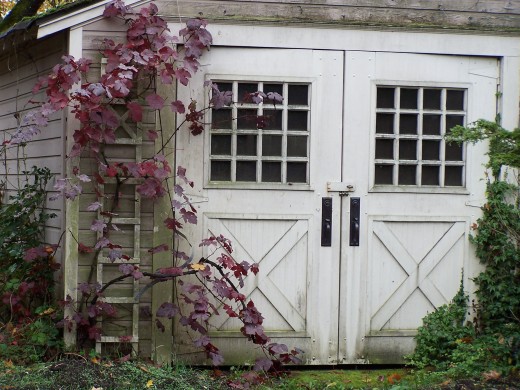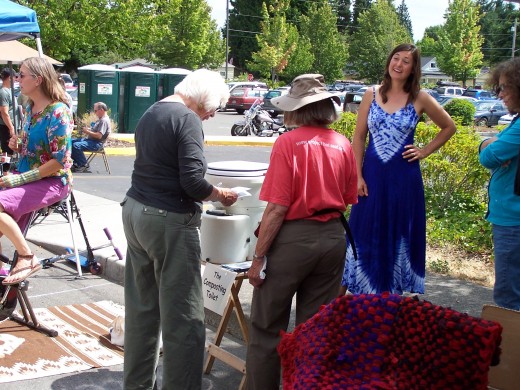- HubPages»
- Books, Literature, and Writing»
- Commercial & Creative Writing»
- Creative Writing
Exercises to Improve Your Fiction Writing
Easy Reading Is Damn Hard Writing
My thanks to Maya Angelou for that quote, and boy oh boy, did she ever hit the nail on the head.
The first time I read that quote, I had to step back and give it some thought. I considered some of my favorite authors, and I thought about how their writing flowed. It had a beautiful rhythm to it, like a symphony, and once I started reading some of my favorite books, it was darned near impossible to put them down.
That kind of writing is incredibly hard to do.
I have written two novels now, and without a doubt, the second one was much harder to write than the first. Why? Because I knew more about the craft of writing while I was constructing the second; when I wrote the first novel, three years ago, I knew next to nothing.
The results don’t lie. Novel #2 is much easier to read than Novel #1.
Today I thought I would give you some exercises that should help you in fiction writing. Over the years I have had many people ask me for advice. How do you write a compelling scene? How do you write believable dialogues? How do you write characters that are engaging?
It all comes from practice, and that is what these exercises are all about….practice.
So let’s get started, shall we?

Grab Your Camera and Follow Me
Do you have trouble writing settings for individual chapters? Are your descriptions of rooms, buildings, streets, parks and/or coffee shops bland and boring?
Most likely it is not because you are a bland and boring person, nor is it because you are a bland or boring writing. Rather, it is because some people are visual learners, and you just might be one of them.
Set aside a couple of hours, grab your camera, and head downtown. Just start taking pictures. Take pictures of buildings. Take pictures inside of buildings. Shoot random shots down the street, and shoot random shots of people.
When you are done, you will have created a visual library that you can use for your next fictional writing. Remember that the readers see the scene through your eyes and the eyes of your characters, so use those photos to help you describe to the reader what you want them to see.

It’s Time for a Drawing Lesson
Here’s a dandy little exercise you all can do if you need to give your settings some pop.
Sit down and draw a map of where your story will take place. Be specific. Use a large piece of paper, and make the map schematic and as precise as possible.
Include streets and label them. Draw bodies of water and individual buildings. Put in parks or forests, houses or strip malls.
If your whole novel or story takes place in one building, then draw a schematic of the entire building, room by room.
Now close your eyes and imagine what each individual thing on that map sounds like…how does it feel….what is its taste and smell?
Now you are ready to write a scene.
Grab a Tape Recorder
Remember when you are writing dialogue that no two people sound the same. We all have different dialects or speech patterns. Some of us use contractions when we speak; some don’t. Some of us use very formal English; some use gutter English.
In other words, your characters must reflect real life, in order for them to be believable.
Do you have a tape recorder? If so, head on down to your local coffee shop, order a mocha, and grab a table. Set the tape recorder on the table and turn it to record, and then sit back and enjoy your drink. When you finish your mocha you will have some conversations to listen to when you get home, and hopefully the speech patterns in those conversations will help you the next time you write dialogue.
Obviously this can be done anywhere where there are many people coming and going, so if you don’t like coffee, go to the food court at the local shopping mall.
Grab Your Notebook
Let’s continue to tantalize the senses.
If you are a writer you should have a notebook. This is not a suggestion. It is a statement of fact.
Take your notebook and head outside. It is time to do a little exercise for your five senses.
Go for a walk and record, in your notebook, what you smell along the walk. Don’t just write that you smell a rose. Write a description of that smell. Don’t just write that you smell dog poop. Write a description of that disgusting smell.
Move on to the next of your senses. Touch things along your walk. Touch the bark on a tree and write a description. Touch your neighbor’s…..hydrangea, and write that description.
Let’s do a taste test. Get those taste buds activated and taste a few things along your walk.
What do you hear? Don’t say you hear a chainsaw, but rather describe it in detail. Don’t say you hear a dog bark, but instead, describe that bark so that your readers will actually imagine they are hearing it.
Record it all in your notebook, and when you are done you will have some great additions to the next short story or novella that you write.

For Those of You Who Are Not Visual Learners
Lay down on the grass on the next sunny day.
As lovely as that may be, you are actually doing it for a reason.
I am convinced that many people share this trait with me: we get so busy with our lives, that we fail to experience all there is in front of us. We have pressures on us, and we are thinking about what we have to do in the next hour, and we rush here and we rush there, when there is this wondrous thing called life going on around us that we are missing.
While down on the grass, close your eyes. Listen to the sounds of life. Smell the scent of lavender in the air, the honeysuckle, the newly-mowed grass. Feel the blades of grass and the soft whisper of wind through your hair.
Remember back when you were a child, staring up at the clouds, and seeing shapes in them. Imagine floating with that cloud, looking down on life.
It is all there for you to experience from your front lawn, and if you can experience it there, you can share it with your readers through the written word.
Join me on my website for more writing tips
- William Holland | Thoreau of the 21st Century
Tips, discussions, observations, all for writers
You Have Your Marching Orders
You have no excuses. It is summertime, so you can’t blame blizzards for keeping you inside. No matter how busy you are, you certainly can find fifteen minutes to try one of these exercises.
What do you have to lose? Absolutely nothing!
What do you have to gain? Quite possibly a whole new level of talent you never knew existed.
Remember that good writing is not supposed to be easy. If it was, everyone would be doing it.
Do you want to be a good writer, or the reader of good writing?
2014 William D. Holland (aka billybuc)
“Helping writers to spread their wings and fly.”










